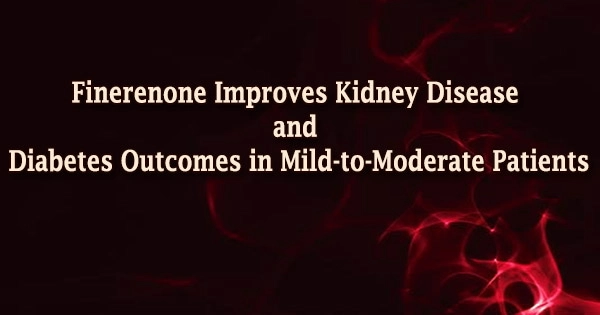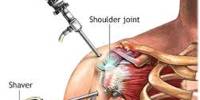In individuals with mild-to-moderate renal disease and type 2 diabetes, finerenone lowers the risk of cardiovascular morbidity and death. A late-breaking study presented in a Hot Line session today at ESC Congress 20211 and published in the New England Journal of Medicine came to this conclusion.
Diabetic kidney disease affects around 40% of diabetic people and is the most common cause of chronic kidney disease globally. Some people proceed to end-stage renal failure, although the majority die from cardiovascular diseases and infections before requiring dialysis.
Finerenone, a nonsteroidal mineralocorticoid receptor antagonist (MRA), was found to delay kidney disease progression and enhance cardiovascular outcomes in patients with advanced renal disease and type 2 diabetes in the FIDELIO-DKD study. FIGARO-DKD looked assessed how finerenone medication affected cardiovascular and renal outcomes in individuals with mild-to-moderate kidney disease and type 2 diabetes.
FIGARO-DKD recruited persons with type 2 diabetes and mild-to-moderate kidney disease5 who were treated with optimal renin-angiotensin system (RAS) inhibition in the study population. Because finerenone raises serum potassium levels by about 0.2 mmol/L on average, patients had to have a serum potassium level of 4.8 mmol/L or lower at the run-in and screening visits (but not at randomisation) in order for levels to be kept in the optimal range for most patients, i.e. around 5.0 mmol/L or lower.
Despite this, the study medicine may be maintained until a potassium level of 5.5 mmol/L was achieved. Because steroidal MRA treatment is a class 1A guideline and withholding medication for the course of the experiment would have been unethical, patients with symptomatic chronic heart failure with diminished ejection fraction were excluded.
A total of 7,437 patients were randomly assigned to either oral finerenone (10 or 20 mg) or placebo once day in 48 countries. The average age was 64.1 years, and males made up 69.4 percent of the population. The primary outcome was a cardiovascular composite that included time to cardiovascular mortality, nonfatal myocardial infarction, nonfatal stroke, or heart failure hospitalization.
The primary outcome occurred in 458 (12.4%) and 519 (14.2%) patients in the finerenone and placebo groups, respectively, after a median follow-up of 3.4 years. Finerenone reduced the relative risk of this endpoint by 13% when compared to placebo (hazard ratio (HR) 0.87; 95 percent confidence interval (CI) 0.76-0.98; p=0.03). The cardiovascular benefit was mostly due to a 29 percent reduction in heart failure hospitalizations.
A composite of kidney failure, a prolonged decline in estimated glomerular filtration rate (eGFR) of 40% or more from baseline, or renal mortality was the primary secondary outcome.
In the finerenone and placebo groups, this objective occurred in 350 (9.5%) and 395 (10.8%) patients, respectively (HR 0.87; 95 percent CI 0.76-1.01; p=0.07).
In the finerenone and placebo groups, the composite of kidney failure, prolonged decline in eGFR by 57 percent or more from baseline, or renal mortality occurred in 108 (2.9 percent) and 139 (3.8 percent) patients, respectively (HR 0.77; 95 percent CI 0.60-0.99). In the finerenone and placebo groups, end-stage renal disease occurred in 32 (0.9%) and 49 (1.3%) individuals, respectively (HR 0.64; 95 percent CI 0.41-1.00).
In terms of safety, there was no difference in the overall frequency of adverse events across groups. Finerenone increased hyperkalemia (10.8 percent) as compared to placebo (5.3 percent), however study medication discontinuation was minimal (1.2 percent with finerenone versus 0.4 percent with placebo).
Study author Professor Bertram Pitt of the University of Michingan, Ann Arbor, US said:
“Finerone improved cardiovascular outcomes in patients with mild-to-moderate kidney disease and type 2 diabetes treated with optimised RAS blockade and with well-controlled blood pressure and diabetes. Finerenone was found to be beneficial in all eGFR and urine albumin-to-creatinine ratio (UACR) categories. The findings, when combined with FIDELIO-DKD, support the use of finerenone to enhance cardiorenal outcomes in patients with kidney disease and type 2 diabetes.”
















